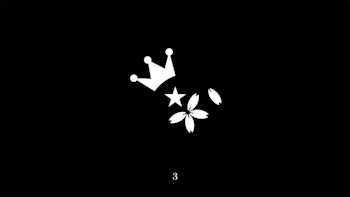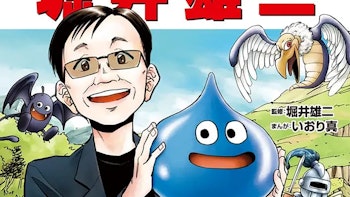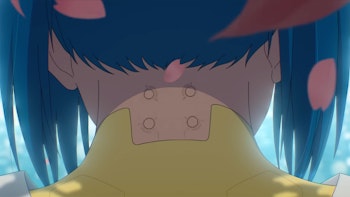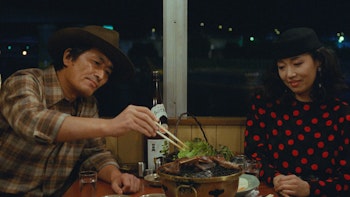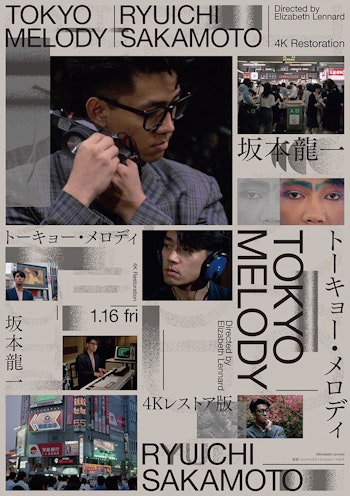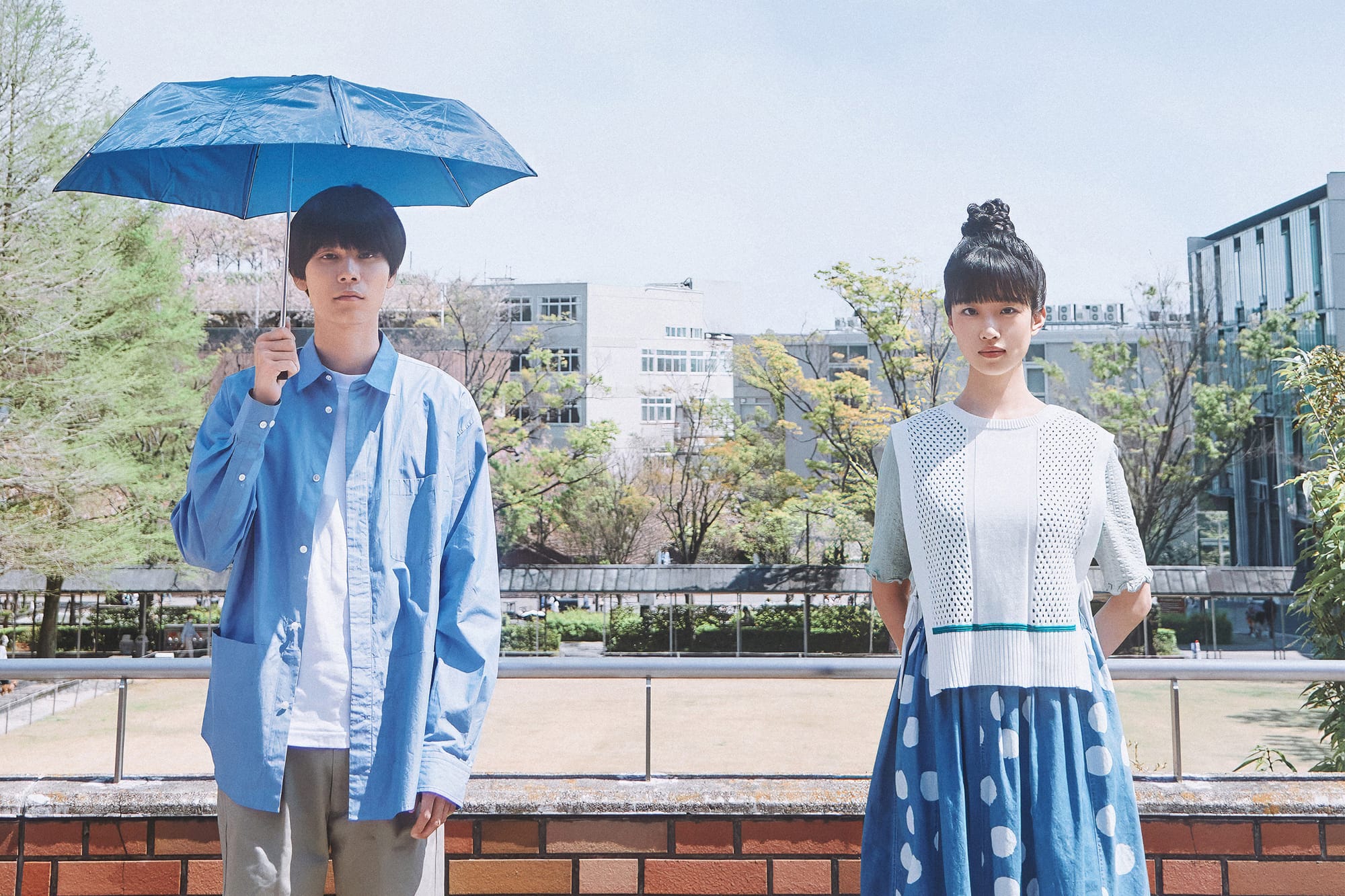
Akiko Ohku has always been a somewhat confusing beloved figure for Tokyo International Film Festival. Not because her films are lacking in quality. Rather, although I appreciated the craft, I found myself wondering if I simply failed to see eye to eye with the director’s style after feeling indifferent to her 2017 hit Tremble All You Want centered on an anxiety-fueled salarywoman, alongside her 2020 romance Hold Me Back, despite both securing the Audience Award when screened in Competition in their respective years.
Then I saw She Taught Me Serendipity. I get it now.
The art of Ohku’s films comes from extracting a deep and lasting connection out of the relatively ordinary. Whether that be satire at a comedic extreme with her 2022 film Wedding High, or the stress of the daily grind and the comfort in those around us that drove Tremble All You Want and Hold Me Back, these films cut back the melodrama for something surprisingly restrained in the realm of the Japanese mainstream. With a dose of humor and heart in equal spread, their relatability, rather than dramatic fervor, was the hook.
It would be hard to argue that She Taught Me Serendipity isn’t a more dramatic film by comparison, a product of the film being an adaptation of a bestselling romance novel by male comedian Shusuke Fukutoku. Where this succeeds is by following in the footsteps of films like We Made a Beautiful Bouquet or Even if This Love Disappears from the World Tonight by weaponizing the expected conventions of the genre to create something that breaks from similar films for something more tragic yet heartwarming and powerful, elevated by incredible acting from a range of up-and-coming stars.
You have all the tropes established early on. Opening the film on a university lecture hall, you have the aloof and mostly-solitary student Konishi (our protagonist, played by Riku Hagiwara), studying alone before noticing the confidence and aura of the defiantly-singular and also-lonely Sakurada (Yuumi Kawai) as she leaves the lecture early. When sat with his only friend Yamane (Kodai Kurosaki), portrayed as an eccentric goofball with an equally-garish fashion sense, it’s his fascination with the lonely soba noodle-eating Sakurada that leaves him desperate to learn more.
Separated from this is the infectiously-bright energy of Sacchan, portrayed with a film-defining performance from Aoi Ito, a musician in her school club who helps with cleaning the baths at the local bathhouse with Konishi after it closes for the day.
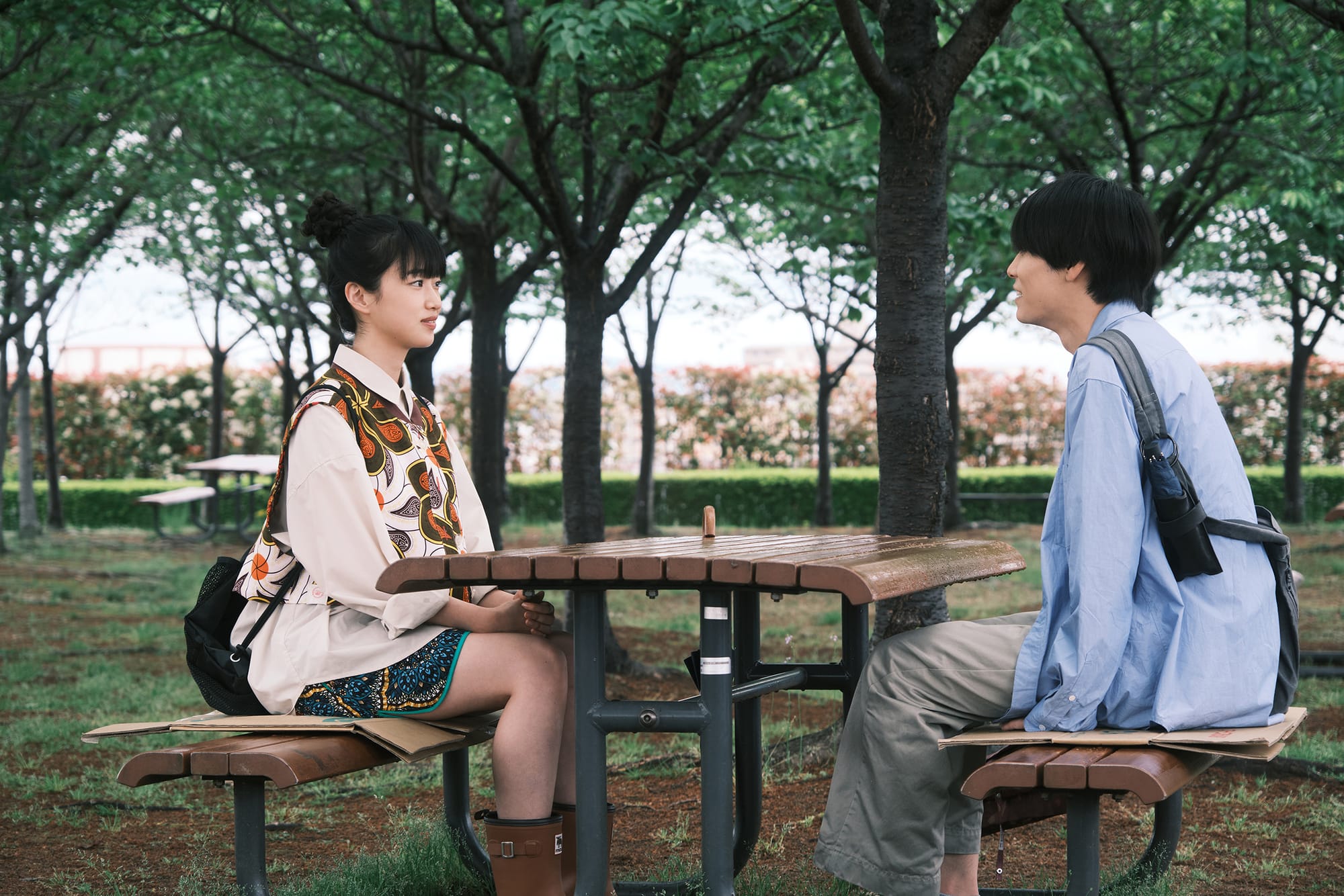
This is a film that lulls you into a false sense of security, at first impressing in its technical merits and great ensemble but certainly strictly following all the expected beats from this style a romantic drama. The pair stumble into one another when walking a back path towards their lecture, and their shared solitude under the rain brings them into casual conversation. Casual conversation turns into a never-ending stream of ideas and jokes. You would think they'd known each other for years.
The editing emphasizes, making these moments last forever as the film lets them speak when many movies would cut away early, utilizing the expectations of the medium to make minutes of chit-chat feel like an eternity. Even after a day, you’d think they had been dating for years. It’s fate. It’s serendipity.
Cafe dates at an unusual cafe with quirky names for every time except the omelet rice the owner also refuses to cook, the dog the pair play with that happens to live with the owners at Sakurada’s job. The film is almost as elated as the characters at expressing this newfound excitement for their relationship as it continues to expand. Title cards reflecting the moods of the day flick across the screen, the film jumps awkwardly between scenes for no practical issue other than a loss for words. All shot with a nostalgic 4:3 aspect ratio that feels idealistic of their blossoming love.
“You should listen to Hatsukoi Crazy by Spitz. The intro, with the piano playing before the drums come in, has to be one of the best intros of all time.”
This awkwardness in editing and acting is tinged with an undercurrent of uncertainty. This is too fast, right? We’ve tunnel-visioned on love, but what about everyone else? Sacchan, one night at the bathhouse, asks Konishi to give the song a listen, a request made out of her love for the song and of him, fascinated in the song's infectious sound and hoping another opinion can help contain her bubbling emotions. But he never listens to it. He’s so wrapped up in Sakurada that the friendship to him is vapid, and is certainly not appreciated.
As the tension reaches breaking point after days of this routine, just before the pair head home for the day, Sacchan provides a confession doomed for failure. More than a confession, it’s a reality check, an inditement on our shared callousness as protagonist and audience, a painful readjustment. For almost ten minutes, we are forced to sit there, motionless, as Sacchan extols all of herself on the screen. The crushing weight of her infatuation, the painful gut punch as Konishi talks of his own love knowing that her long-held feelings will never be reciprocated, an anger at that, a realization that it will never truly work, a resolution to return to normal. All while anticipating his exact response and replying without pause, because for him to interrupt and reply to her feelings would make it all feel too much.
As much as it is a confession, it’s an inditement on ourselves as an audience for getting so wrapped up in love that we forgot to look up. It’s a journey through the stages of grief in unbroken monologue, and it’s a crucial turning point that transforms this story of love into one of acceptance, pain, moving forward, but also anxiety, respect, understanding, a dose of reality, and yes, grief. Because this, too, is serendipity, and it matters how we learn from that.
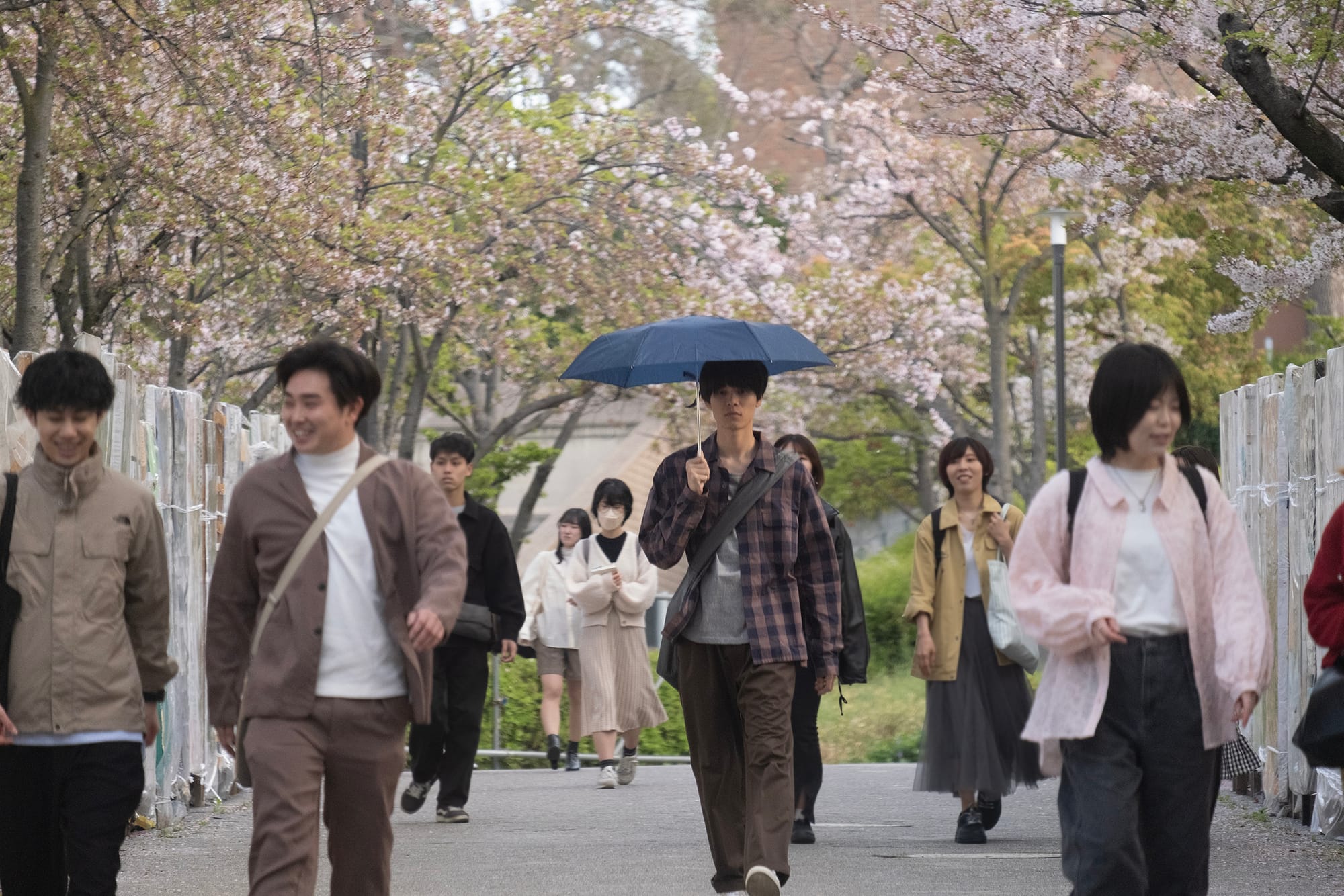
The world gets angrier. The world get more painful. Anxiety leaks in and leads us to make worst-case assumptions of the people around us. But the world expands. Then, we move forwards.
She Taught Me Serendipity was the film where the quirks of Akiko Ohku’s directorial style finally worked for me. Her deliberate technical awkwardness has always been used to give us subliminal placement inside the head of our characters, but this was the first time the sudden zooms, unusual switches in perspective, and these other odd moments went from distracting to effective in how they captured the imperfections of being human.
The movie is a true gem, a highlight of an already-strong festival. With a planned 2025 release, this is already setting out a stall to be one of the best Japanese films of the year, and a true star turn for a few of these actors but particularly Aoi Ito. Although the film suffered for its script, her previous leading turn in Kazuaki Kiriya’s From the End of the World was similarly elevated by her presence, and this film is the chance for her to receive the recognition she deserves.
These rich characters, actors, this film. It’s like serendipity. And like the intro of "Hatsukoi Crazy", it’s something special.


